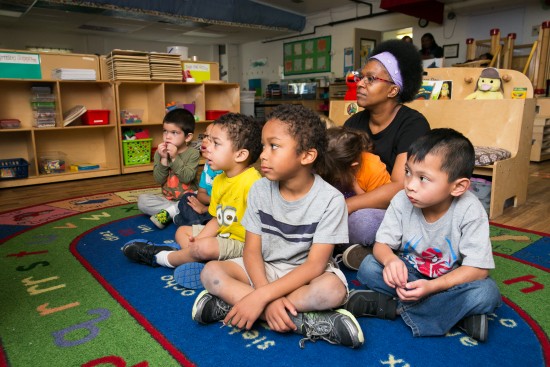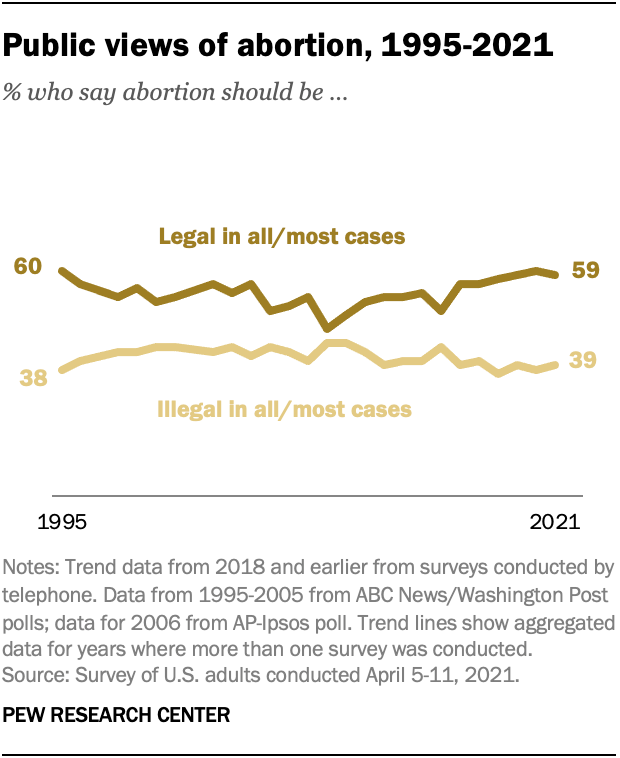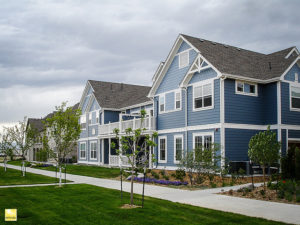11 FACTS EVERYONE SHOULD KNOW:
WHAT DEMOCRATS HAVE DONE VERSUS WHAT REPUBLICANS WANT TO DO
The Policy Differences Are Clear
On the Issues:
Boosting Child Care Funding…Not Cutting It!
Highlights:
- Democrats passed the Fair Start for Kids Act, a new law that boosts pay for child care providers and makes child care more affordable for Washington families.
- Democrats also passed budgets that invest heavily in child care, expanding access to our state’s pre-k program, increasing subsidies, and reducing family copays.
- Republicans proposed cutting the funding source for Fair Start for Kids, reducing available funds in the budget that go directly to making child care more accessible and affordable.

Democrats oppose Republican bills that seek to cut child care funding – we know that doesn’t work and is the wrong direction for Washington families who want high-quality, affordable child care.
Investing MORE In Your Kids’ Schools, Not Defunding Education
Highlights:
 As schools and students struggle with the fallout of the pandemic, Republicans proposed legislation that would DEFUND SCHOOLS by diverting your taxpayer dollars from public to private schools.
As schools and students struggle with the fallout of the pandemic, Republicans proposed legislation that would DEFUND SCHOOLS by diverting your taxpayer dollars from public to private schools.- Democrats oppose Republican proposals to defund schools and instead INCREASED funding for teacher pay, inflation-related costs, school transportation, and adding counselors, psychologists, and social workers in our public schools across the state.
- Republicans also introduced legislation that repeals the Estate Tax (HB 1245) which would cut funding sources for K-12 and higher education funding while providing a huge tax break to the wealthiest families in the state.
Democrats believe that all students deserve a fair opportunity to learn and grow, and that is why we passed policies that prioritized students. That means public schools that are safe, fully staffed, and ready for our children to return in September. It means addressing inflation-related costs for schools, paying our teachers a good salary so they don’t leave the profession, and hiring more counselors, nurses, psychologists, and social workers. It means more free lunches, more school bus funding, and better language access for our students.
Democrats believe we must invest MORE in schools, not less and the Republican proposed bills simply are bad for Washington students.
Bringing Down Costs For Washington Families
Highlights:
- Global and national inflation trends continue to impact Washington families, so Democrats passed new laws lowering the cost of health care, college education and worker retraining, and basic needs for those who are struggling the most.
- Democrats also proposed a sweeping reduction in the state Business & Occupation taxes, significantly lowering or reducing taxes for small businesses in the state, while reducing unemployment insurance premiums and providing grants to the hospitality sector, which was one of the hardest hit during the pandemic.
Inflation is impacting everyone, with working families, people on fixed incomes, and those who have been struggling feeling it the most. Unfortunately, inflation is a global problem and Washington state can only do so much on its own. But Democrats led on issues such as reducing the burden for middle class and working families who face high health care costs, uncertainty in how they will pay for higher education or workforce retraining costs, and the basics, such as putting food on the table, keeping the lights on, or even making their rent payment at the end of the month.
Through the Democratically led Legislature, new laws to help reduce health care costs passed. That includes legislation governing surprise bills after an emergency room visit passed to make sure you aren’t stuck with an unfair bill (HB 1688), lowering the cost of insulin to $35 per month (SB 5546), and expanding and improving our state charity care laws so that those who qualify can access free or reduced-cost hospital care (HB 1616).
 Many families are considering a change in career or are questioning the ability to pay for a child’s college during this period of economic uncertainty. Following 2019’s historic expansion of the Washington College Grant to provide free or reduced college tuition, Democrats expanded the program and funded new bridge grants for students to pay for books, transportation, or child care. We also created a new state student loan program that has a low interest rate of just one percent, far better than existing private and federal public loans, offering better options to families who are worried about crushing debt in pursuit of their college degree or certificate (HB 1736).
Many families are considering a change in career or are questioning the ability to pay for a child’s college during this period of economic uncertainty. Following 2019’s historic expansion of the Washington College Grant to provide free or reduced college tuition, Democrats expanded the program and funded new bridge grants for students to pay for books, transportation, or child care. We also created a new state student loan program that has a low interest rate of just one percent, far better than existing private and federal public loans, offering better options to families who are worried about crushing debt in pursuit of their college degree or certificate (HB 1736).
For those families that have struggled the most, ensuring they had a roof over their heads, food on the table, and the heat on was a top priority. When you don’t have a safe place to live, food to eat, or a home that is warm and protecting, nothing else matters. Democrats passed multiple budgets that paid over $1 billion in back rent to keep families in homes, hundreds of millions in food programs that ensured people could eat, and hundreds of millions in utility assistance for basic utilities like water, energy, garbage, recycling, and broadband. And to meet the state’s growing housing and homelessness emergency, Democrats transferred $500 million this year alone to the Housing Trust Fund to build more housing and shelters for those without a warm place to live.
 We know that many of our small businesses have struggled during the pandemic and Washington families rely on those institutions for jobs, entertainment, and community involvement. On top of the hundreds of millions provided in grants last year, Democrats increased the credit used by small businesses to deduct from their state business and occupation taxes, which means 125,000 Washington small businesses are getting a significant reduction of their state taxes, or may pay no B&O tax at all (SB 5980). We also increased state budget funds by $100 million to support hospitality businesses so they are able to keep their doors open as we emerge from the pandemic, and we cut liquor license fees in half, a boost to our restaurants, bars, tasting rooms, and distilleries. Finally, Democrats reduced unemployment insurance premiums for businesses.
We know that many of our small businesses have struggled during the pandemic and Washington families rely on those institutions for jobs, entertainment, and community involvement. On top of the hundreds of millions provided in grants last year, Democrats increased the credit used by small businesses to deduct from their state business and occupation taxes, which means 125,000 Washington small businesses are getting a significant reduction of their state taxes, or may pay no B&O tax at all (SB 5980). We also increased state budget funds by $100 million to support hospitality businesses so they are able to keep their doors open as we emerge from the pandemic, and we cut liquor license fees in half, a boost to our restaurants, bars, tasting rooms, and distilleries. Finally, Democrats reduced unemployment insurance premiums for businesses.
Protecting The Right To Abortion In Washington State
Highlights:
- Democrats in Washington have voted to expand abortion care and protect this crucial right, never more important now that the Supreme Court may be preparing to overturn Roe.
- Republicans have introduced multiple bills that would severely limit or ban abortions in Washington state despite voter support for abortion care.
Despite attacks from the national level and the US Supreme Court poised to overturn Roe v. Wade, Washington has enacted some of the most progressive reproductive health care protections in the country and we continue to be a leader in the fight for reproductive rights.
Voters of Washington state approved abortion access via referendum in 1970, expanded access in 1991, and the Legislature has continued to expand reproductive rights as recently as 2022. It is clear that voters of Washington state believe that a person’s right to control their own body regarding reproductive health and make medical decisions without government interference should be upheld. In Washington state, voters have supported the right to abortion care and the Legislature has upheld that voter-approved decision. This past year, Democrats passed an update to our abortion laws to ensure all qualified and trained health care practitioners can offer abortion care. Additionally, the new laws ensure that the state cannot penalize patients or providers for authorized abortions (HB 1851). Every single Republican voted against this bill ensuring reproductive rights.
House Democrats will continue to support voter-approved abortion access in Washington state regardless of federal action and expand reproductive health access, affordability, and quality. Washington state must remain a beacon of freedom and hope that supports families’ choice to make their health care decisions.
The Reproductive Privacy Act (RCW 9.02) states that every single individual possesses a fundamental right of privacy with respect to personal reproductive decisions including:
- The fundamental right to choose or refuse birth control.
- The fundamental right to choose or refuse to have an abortion.
Washington has backed up this fundamental right to birth control and abortion by*:
- Requiring equitable insurance coverage for birth control and abortion, including student health plans.
- Funding abortion services for Medicaid recipients (state-only dollars).
- Codifying the provisions from the Affordable Care Act requiring family planning services be provided with no co-pays or deductibles.
- Funding basic family planning services (including abortion) for individuals who would be eligible for the Take Charge Program if not for immigration status.
- Ensuring providers who work in facilities owned by religious entities are not prohibited from providing patients information about all of their reproductive options.
*Referendum 20 (1970), Initiative 120 (1991), ESHB 1338 (1993), SSB 6219 (2018), SSB 5602 (2019), SSB 5889 (2019), ESHB 1608 (2020), HB 1009 (2021), HB 1851 (2022)

Giving Police The Appropriate Tools And Holding Them Accountable
Highlights:
- Voters passed Initiative 940 in 2018 to require a good faith test for when deadly force is justifiable and require de-escalation and mental health training. The Legislature has strengthened those laws to build a public safety system with accountability, transparency, and equal justice. Since our landmark package of police reform legislation was signed a year ago, police killings have been reduced by 60 percent.
- After hearing from communities, law enforcement, prosecutors, and advocates, Democrats passed additional measures to ensure that the right balance would result in keeping communities safe and maintaining important expectations for law enforcement.
- Republicans proposed rolling back reforms that have contributed to the reduction of police violence, and even proposed a law that would require drivers to learn how to not be shot by a police officer, putting the responsibility of not getting shot on teen drivers.
Voters have demanded action to ensure that interactions between law enforcement and communities prioritize de-escalation and appropriate force. Unfortunately, police violence continued to result in injury and loss of life. In fact, a recent Seattle Times report showed that Washington cities and counties have paid out over $100 million to victims of police misconduct in the last five years (Seattle Times, “Police misconduct is costing WA taxpayers millions. The trend shows no sign of slowing down”). We need to change how police interact with the communities they are hired to serve.
The Legislature passed reforms to set clear expectations for officers’ behavior, set a baseline for acceptable use of force, tactics, and equipment, and ensure accountability and transparency. After those laws passed, police killings have reduced by 60% in the last year. Ensuring that the laws are implemented well and address any concerns, the Legislature continued its work this year to ensure the right balance of community safety and accountability is maintained. That includes funding to train 390 additional students at the Basic Law Enforcement Academy, $5.8 million for local law enforcement to meet training requirements for existing officers, grants for wellness programs for on-the-job issues like stress management and suicide prevention, and $26.5 million over two years for a 10% boost to salaries of Washington State Patrol troopers, lieutenants, and captains.

Getting to the Root of Substance Use in Our Communities
Highlights:
- A recent Supreme Court decision (Blake) invalidated Washington’s statute that made drug possession a felony, leading Democrats to pass a new standard that allows law enforcement and behavioral health staff to offer treatment to people with substance use disorder without assuming the intent of someone with drugs.
- Democrats also passed policies and budgets to increase treatment options and availability for people struggling with drugs or alcohol so that they can get better.
- Republicans introduced legislation that would roll our state back and create a confusing, patchwork of varying penalties and violations for drug possession depending on what city or county you were in.
 The Blake decision invalidated Washington’s statute that made simple possession of drugs a felony, leaving the state without any law that addressed what should happen if someone was stopped by police and found to have drugs on them. Many said we should do nothing and focus purely on treatment. Many advocated for a new felony law, which would continue to jail and imprison people whose primary challenge is drug addiction. Democrats believe that treating substance use disorder is more effective when it is done outside of the criminal justice system and putting people in jail is the most expensive thing we can do and doesn’t get the result we seek. Instead, we passed a new law that made possession a misdemeanor but requires police to offer treatment options multiple times before issuing the infraction. Law enforcement has discretion to offer additional treatment options in future interactions, rather than being required to jail someone unnecessarily. And, rather than making an illusory promise, we passed unprecedented investments in recovery, case managers, housing, and more.
The Blake decision invalidated Washington’s statute that made simple possession of drugs a felony, leaving the state without any law that addressed what should happen if someone was stopped by police and found to have drugs on them. Many said we should do nothing and focus purely on treatment. Many advocated for a new felony law, which would continue to jail and imprison people whose primary challenge is drug addiction. Democrats believe that treating substance use disorder is more effective when it is done outside of the criminal justice system and putting people in jail is the most expensive thing we can do and doesn’t get the result we seek. Instead, we passed a new law that made possession a misdemeanor but requires police to offer treatment options multiple times before issuing the infraction. Law enforcement has discretion to offer additional treatment options in future interactions, rather than being required to jail someone unnecessarily. And, rather than making an illusory promise, we passed unprecedented investments in recovery, case managers, housing, and more.
Facing And Addressing Climate Change
Highlights:
- Democrats continue to fight for a clean energy future through new policies that will lower greenhouse gas emissions and make sure Washington is a beautiful place to live and work.
- We’re changing how we invest in our transportation sector as well, passing Move Ahead WA to invest in new infrastructure that reduces carbon emissions and expands access to transit.
- Republicans opposed these efforts, voting no across the board against these Democratic bills to reduce greenhouse gas emissions, clean up our energy grid, and improve transit options and access in our transportation package.
Washington state is a beautiful place to live, but all of that is under threat from climate change. While some still question the existence or impact of climate change, Democrats have led the charge in making Washington state a leader in lowering greenhouse gas emissions by pushing the state toward a clean energy future. That includes requiring clean energy in our grid statewide in the coming decades (SB 5116) and creating a cap and invest program to reduce greenhouse gas emissions (SB 5126), as well as a Clean Fuel Standard to clean up transportation fuel emissions (HB 1091).

Move Ahead WA takes meaningful action against climate change by putting $5.4 billion toward electrification and the expansion of multimodal transportation. Washingtonians deserve convenient, accessible options so they can use what works best for them while reducing carbon emissions. That means zero emission ferries, bicycle and pedestrian grants, and electric vehicle charging stations. It also means $3 billion for reliable transit service, free transit passes for anyone under 18 years old, and expanding multimodal transportation so that we reduce traffic and pollution that disproportionately impacts communities of color and makes affordable options available.
In Pursuit Of Racial Equity And Justice
Highlights:
- Democrats passed new laws to address equity needs for families, including expanding language access for parents and students in public schools and expanded access to internet service and devices for underserved communities (HB 1153 and HB 1723).
- Democrats also increased focus on children, passing a new law to expand doula access and the Temporary Assistance for Needy Families (TANF) diaper subsidy (HB 1881 and SB 5838).
- Republicans introduced bills with similar policy outcomes from conservative states that would have the negative effect of not giving teachers training on how to recognize and avoid racism. (HB 1807, 1886)
 Democrats in the Legislature have passed policies to help ensure that everyone is welcome in our state, regardless of where they come from, the color of their skin or how much they earn. That means improving police accountability, encouraging equitable recovery from the pandemic, dismantling institutional racism in education, providing for working families, advancing environmental justice and investing in marginalized communities. Last year, Democrats approved trainings for education staff for diversity, equity, and inclusion, a key tool to identifying where racism exists.
Democrats in the Legislature have passed policies to help ensure that everyone is welcome in our state, regardless of where they come from, the color of their skin or how much they earn. That means improving police accountability, encouraging equitable recovery from the pandemic, dismantling institutional racism in education, providing for working families, advancing environmental justice and investing in marginalized communities. Last year, Democrats approved trainings for education staff for diversity, equity, and inclusion, a key tool to identifying where racism exists.
Passing new laws to improve language access in schools, expanding access to internet service and devices, and maternity care for newborns and parents were top priorities of the House Democratic Caucus and passed into law this year. The Olympian praised Democratic efforts to improve access to diapers for low-income families in an editorial this year, “Bravo! Babies’ bottoms will benefit from budget boost for diapers.”
Changing How We Help Expand Housing And Combat Homelessness
Highlights:
- Democrats championed historic investments and pandemic protection policies that successfully prevented the “eviction tsunami” that economists and the media predicted. These efforts include establishing our state’s first permanent funding source for rental assistance.
- Democrats continue to invest in affordable housing and shelter construction to help families looking for a safe place to live and ensure people struggling with mental health challenges or substance use disorder have a place to go when discharged from a hospital.
- When a Democratic leader offered a solution to addressing homelessness in 2016, a Republican leader classified homelessness as “her emergency.”
- Democrats voted to pay landlords back rent owed by tenants struggling under the economic impacts of COVID-19, as well as food, utility, and mortgage assistance for millions of Washington families.

Washington was in a housing and homelessness crisis before the pandemic, and the economic downturn made it worse. House Democrats believe that in this crisis, while many are still recovering or struggling with the pandemic, we must protect those who are most vulnerable. That means paying back rent owed by renters to their landlords, making it easier to build affordable housing quickly, building quality and climate-friendly housing, and reducing homelessness for those who have nowhere else to turn. Democrats passed budgets that put over a $1 billion in state funds to pay off back due rent during the pandemic, hundreds of millions in food assistance, utility assistance, and millions for mortgage assistance for homeowners.
In the 2021 and 2022 Legislative Sessions, Democrats passed new policies to help people struggling with substance use disorders to be placed in housing after being discharged from a hospital and expanded mitigation programs to remove financial burdens from victims of domestic violence, sexual assault, harassment, and stalking who are forced to move. And we invested over half a billion in state funds to build affordable housing and shelters.
Preparing For Washington’s Transportation Needs: Move Ahead WA
Highlights:
- Democrats passed a transformational new transportation package called Move Ahead WA that is the result of over 90 listening sessions across the state to hear YOUR transportation priorities.
- It focuses on the concerns heard from communities in Washington and the need to put the people of WA first.
- Republicans opposed the plan, instead offering bills that would have taken money from the budget used to fund K-12 Education, colleges, parks, child care, and more.
Move Ahead WA is a transformational 16-year package that creates a sustainable, achievable future for our transportation sector. House Democrats hosted over 90 listening sessions to hear the top transportation priorities from communities across the state. This package addresses the concerns we heard and reflects our focus on meeting the needs of every community in WA. Move Ahead WA is a commitment to our values and a promise to put the people of WA first. It’s a future-oriented proposal that addresses the realities people face today while investing in WA communities for tomorrow and beyond. Democrats passed Move Ahead WA to focus on: Preserving our infrastructure (roads, bridges, ferries, and sidewalks), reducing carbon emissions, expanding safe, accessible, affordable options to get around, and addressing the harm caused by past transportation policies.
This is a huge investment, $16 billion over 16 years, including $3 billion for preservation and maintenance of existing infrastructure like bridges, roads, sidewalks, and ferries. It also funds electrification of ferries, new electric vehicle charging stations, infrastructure for bikers and pedestrians, and $3.1 billion for public transit.
 |
 |
 |
 |
 |
Strengthening Communities by Aiding Families and Small Businesses
Highlights:
- Democrats invested in communities by aiding families, small businesses, and local institutions to help everyone move out of the pandemic together.
- With billions invested in ensuring families had the safety net, rental relief, utility assistance, and access to food programs, and hundreds of millions granted to small businesses and art institutions, Democrats have prioritized smart, targeted investments to help communities recover.
- Democrats also passed a massive tax credit for small businesses, meaning most won’t pay the business & occupation tax.
 Democrats recognized that many families are still struggling to recover as Washington moves toward the end of the pandemic. The financial squeeze due to loss of income, inflation, or supply chain issues has hit every corner of the state. The people of Washington need to be able to rely on the social safety net when times are hard, and government needs to do everything it can to support families and small businesses in need. The past biennial and supplemental budgets provided over one billion in rental relief, hundreds of millions in food, utility, and broadband assistance, and hundreds of millions in small business grants and support.
Democrats recognized that many families are still struggling to recover as Washington moves toward the end of the pandemic. The financial squeeze due to loss of income, inflation, or supply chain issues has hit every corner of the state. The people of Washington need to be able to rely on the social safety net when times are hard, and government needs to do everything it can to support families and small businesses in need. The past biennial and supplemental budgets provided over one billion in rental relief, hundreds of millions in food, utility, and broadband assistance, and hundreds of millions in small business grants and support.
Democrats also passed the largest tax credit in recent history, meaning most small businesses will pay nothing for state business & occupation taxes. We also invested in equitable, smart investments for a more inclusive recovery, with $100 million for hospitality businesses, expanded assistance for arts, heritage, and cultural organizations, incentives for more TV and movie filming in Washington state, and disaster response, innovation, and resiliency for small businesses.
